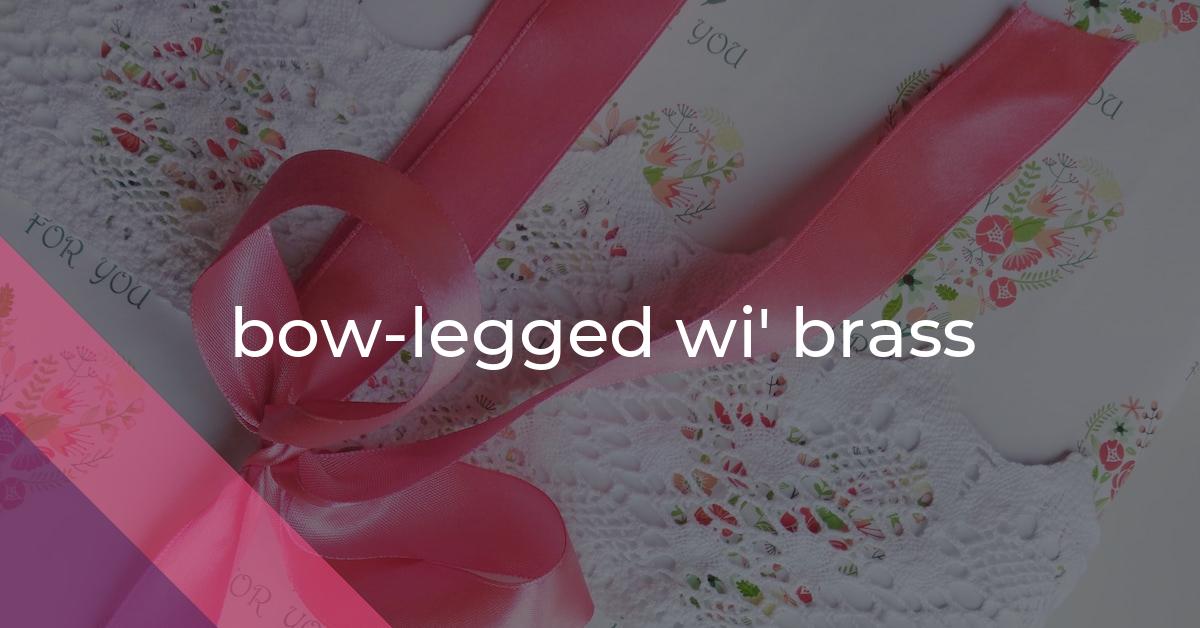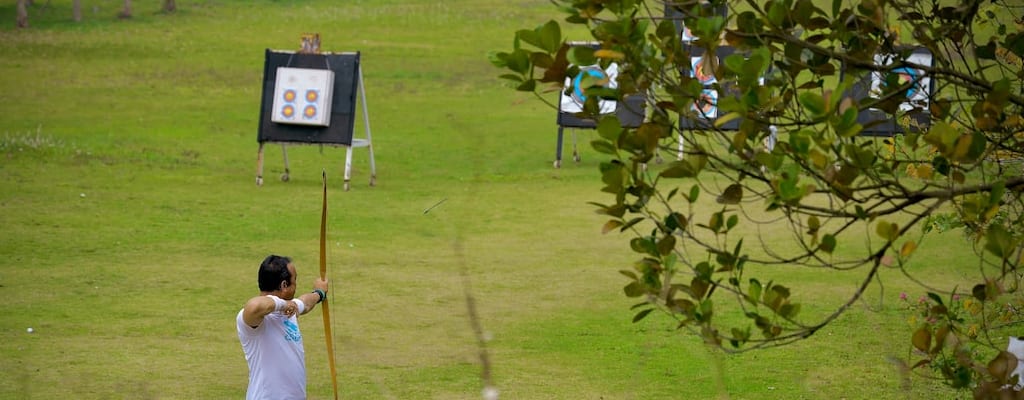bow-legged wi’ brass: Idiom Meaning and Origin
What does ‘bow-legged wi' brass’ mean?
The idiom "bow-legged wi' brass" refers to someone who is boastful and arrogant, strutting around with an excessive amount of confidence, similar to a person with bowed legs walking with a swagger.

Idiom Explorer
The idiom "too big for one's britches" means to be overly confident or arrogant, behaving as if one is more important or capable than they actually are.
The idiom "kiss arse" means to obsequiously flatter or grovel in order to gain favor or advantage, often by being excessively complimentary or subservient towards someone in a position of power or authority.
Jumped-up refers to someone who is arrogant or conceited, often due to suddenly acquiring a higher social or professional status. This idiom describes individuals who overestimate their importance and exhibit an inflated sense of self-importance.
"High horse" is an idiom that means someone is being arrogant, self-righteous, or condescending. It is often used to criticize someone who acts superior or looks down on others.
The idiom "high and mighty" means that someone is arrogant, haughty, or acting superior to others. It refers to someone who thinks they are better or more important than everyone else.
The idiom "heavy-footed" refers to someone who lacks grace and moves clumsily or loudly when walking or dancing.
The idiom "have legs" means that something has the potential to be successful or popular over a long period of time.
The idiom "go to the bow-wows" means to deteriorate or decline in a significant way.
The idiomatic expression "go to someone's head" means that success or praise can make a person arrogant or overconfident, leading them to have an inflated sense of importance or superiority.
The idiom "get bent" is an offensive expression typically used to dismiss or belittle someone, urging them to go away or expressing frustration towards them. It is considered rude and impolite.
Origins Unleashed
The idiom "bow-legged wi' brass" has its origins in Scottish and Irish dialects. It stems from the physical condition of being bow-legged, which means that a person's legs curve outward like a bow. The term "wi'" is a contraction of the word "with," while "brass" is a slang term for money. Therefore, when someone is described as "bow-legged wi' brass," it means that they not only have the physical characteristic of being bow-legged but are also wealthy.
This idiom is believed to have emerged in the 19th century and was commonly used in working-class communities in Scotland and Ireland. The term "bow-legged" was already in use to describe the physical condition, and the addition of "wi' brass" served to highlight the person's wealth. It is thought that the phrase originated in mining and industrial communities, where physical labor was prevalent, and successful mining ventures brought about wealth.
While the idiom has its roots in these specific cultural contexts, it has since taken on a more figurative meaning. Nowadays, "bow-legged wi' brass" is used to describe individuals who are financially well-off or successful, regardless of their physical appearance. This usage of the idiom emphasizes the idea that wealth and success have the power to transcend physical imperfections.
It's important to note that this idiom is not commonly used in mainstream English, particularly in American English. It is more prevalent in Scottish and Irish communities, where it may be better known and understood. However, as language becomes increasingly globalized and cultural exchange continues, the idiom may gain broader recognition in the future.
One idiom that can be related to "bow-legged wi' brass" is "bow and scrape." This phrase, which dates back to the 17th century, refers to the act of excessively showing deference or subservience to someone in a position of power. While it may seem unrelated at first, the connection lies in the notion of one's outward appearance and how it can be used to convey status and wealth. Both idioms highlight the idea that physical attributes or behaviors can be associated with social standing, whether it be through wealth or rank.
Another idiom related to "bow-legged wi' brass" is "go to the bow-wows." This phrase, which originated in the 19th century, means to deteriorate or decline greatly in quality or condition. The connection to "bow-legged wi' brass" lies in the contrast between the physical condition of being bow-legged and the metaphorical decline represented by "going to the bow-wows." Both idioms touch on the theme of physicality and the impact it can have on one's perception and status.
A third idiom that can be associated with "bow-legged wi' brass" is "broad in the beam." This phrase, which originates from nautical terminology, refers to someone who is wide or large in a physical sense, particularly in reference to their hips or posterior. The connection between both idioms lies in the focus on physical appearance and the associations that can be made based on it. While "bow-legged wi' brass" specifically emphasizes wealth, "broad in the beam" suggests a physical attribute that can be interpreted as a sign of prosperity.
"bow-legged wi' brass" is an idiom that originated in Scottish and Irish dialects. It was used to describe someone who was both physically bow-legged and wealthy. The idiom has since evolved in meaning and is now used to describe individuals who are financially successful, regardless of their physical appearance. While it may be more commonly known in Scottish and Irish communities, cultural exchange may lead to broader recognition in the future. These related idioms, such as "bow and scrape," "go to the bow-wows," and "broad in the beam," further explore the themes of physicality and social status.
Example usage
Examples of how the idiom bow-legged wi' brass can be used in a sentence:
- He walks around like he's bow-legged wi' brass, showing off his expensive clothes and jewelry.
- After winning the lottery, she went on a shopping spree, leaving her bow-legged wi' brass.
- The extravagant lifestyle of the rockstar has left him bow-legged wi' brass.
This idiom is used metaphorically to describe someone who is flaunting their wealth or spending money excessively to the point that they seem to be bow-legged, a physical condition where the legs bend outwards. The addition of "wi' brass" emphasizes the association with money or riches.
More "Slang" idioms



